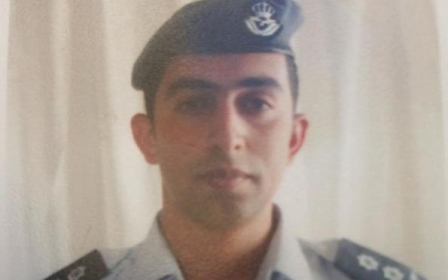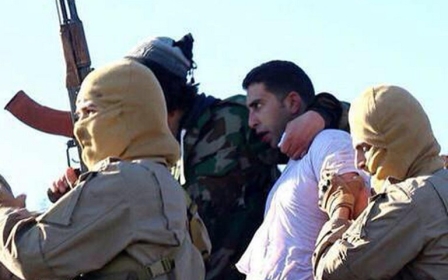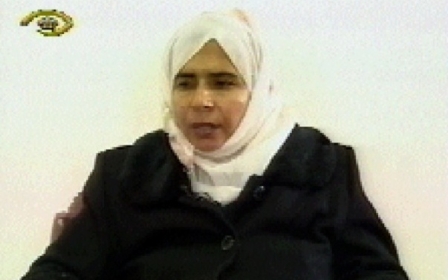A month on, IS dangles Jordanian pilot’s fate

IS vox pops accuse pilot
The man responds, “I say where were you when you knew that your son was going to kill Muslims in Iraq and Syria? Where is your loyalty to Islam? Why you did not tell him that he came to kill Muslims and if he fell in their hands then he would be killed?”
“What do you want us to do with him?” the same interviewer asks another man.
“I want his head hung up in front of everyone because he killed a lot of innocent people. Everyone wants to cut his head off,” responds the man.
“But his family said we should release him,” prompts the interviewer.
The man responds, “No sheikh, we will not release him. They are not fighting us, they are fighting the religion of Allah. They are killing innocent Muslims.”
Videos aimed at Kasasbeh's family
Experts said these messages are directly aimed at the pilot’s family, who have appealed to the group for mercy and described their son as a devout Muslim. They’ve also said they didn’t know of his involvement in the airstrikes until he was snatched. A week after Lt Kasasbeh was snatched, his brother Jawdat admitted he wished the Kingdom of Jordan would pull out of the coalition. “This is not our war,” he said.
Weeks later, Jordan is still in the coalition and Lt Kasasbeh’s family is being taunted by videos that experts say are designed to drive families to such desperation that they push governments to cave in to terrorist demands.
“You have to be a mother with a son in captivity to understand that this works very well,” said one expert on extremism, speaking anonymously in order to be candid about this case. “Some terrorist groups even allow the son in captivity to speak with his mother over the phone as he is being beaten. Families become so obedient they are ready to do anything.”
In Amman, a cloak of mystery has covered the case. Local journalists said they had been told by authorities not to cover the case, and requests for information by this newspaper were not answered.
Is Jordan pulling out of bombing campaign?
On 30 December, Jordanian MP Rula al-Hroob, told a US newspaper that Jordan had pulled out of airstrikes in response to the crisis.
“We have temporarily frozen our involvement in bombing the site of Isis right now, after Kasasbeh has been captured. This should not be a permanent decision, as I believe, but, perhaps, a kind of step back to think and reflect and get the deal done with,” she told NPR.
Several other MPs and diplomatic sources confirmed that this was the case, but the break was fleeting. On 7 January, an Amman-based diplomat said Jordan was flying bombing raids again – “Not much, but they are still doing so.”
Speaking on condition of anonymity, the same diplomat said: “For now Jordan will hang tough, i.e. not negotiate. The public initially rallied around the state and the Jordan Air Force, and people have put out tribal feelers to Isis to ask for his return. But Isis is good at manipulating the narrative – Hashemites attacking fellow Muslims, etc – as their latest video proves.”
By continuing its participation in the coalition war against IS, Jordan has quietly made a critical point: it considers the battle against IS to be not political or military, but existential. A lost pilot may prove to be collateral damage the Kingdom has to accept. IS leaders must know this, and the release of this second video has made another crucial point: Isis controls not just the pilot’s fate but the narrative around it.
“The latest video Islamic State released regarding the Jordanian pilot Moaz al-Kasasbeh is clearly aimed at increasing the pressure felt by the Jordanian government. If there are negotiations taking place, this is Isis trying, once again, to raise the stakes and increase the urgency,” said Charlie Winter, a researcher with the Quilliam Foundation anti-extremism think tank.
Release hope in tribal ties
New MEE newsletter: Jerusalem Dispatch
Sign up to get the latest insights and analysis on Israel-Palestine, alongside Turkey Unpacked and other MEE newsletters
Middle East Eye delivers independent and unrivalled coverage and analysis of the Middle East, North Africa and beyond. To learn more about republishing this content and the associated fees, please fill out this form. More about MEE can be found here.




